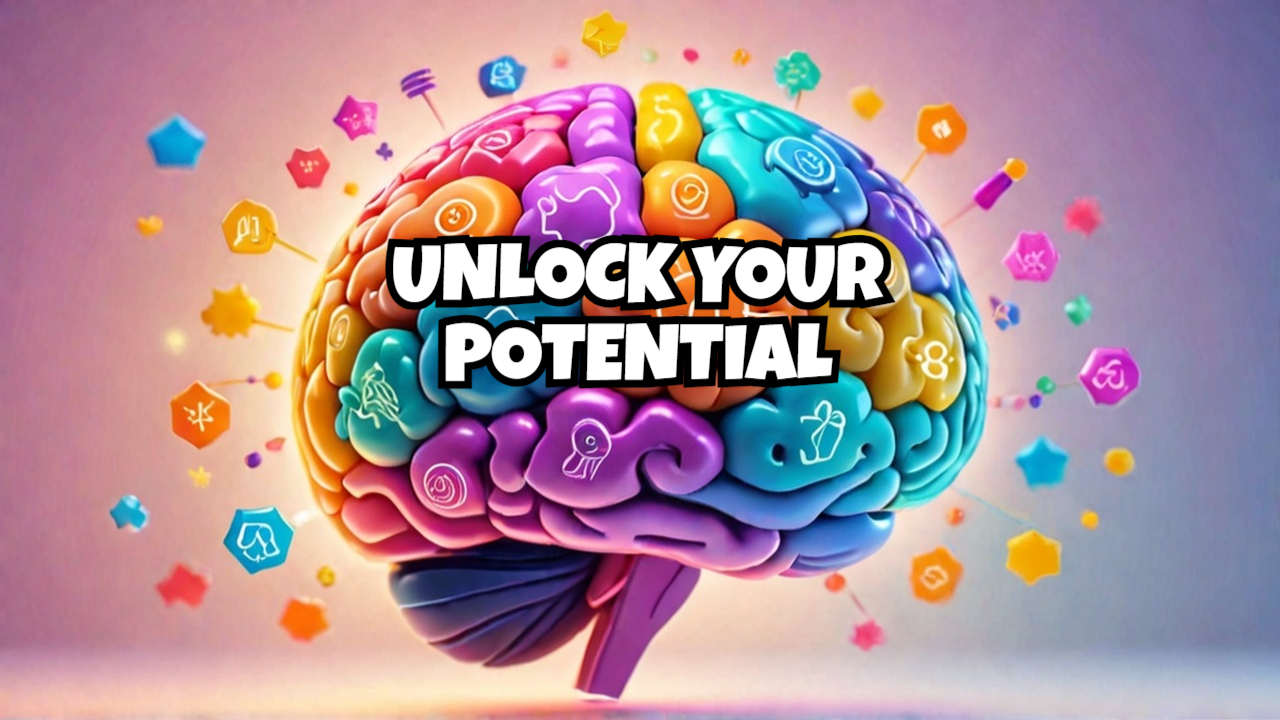“Understanding ourselves and others through personality assessments is not just about labeling traits; it’s about fostering empathy, enhancing communication, and creating a workplace culture where everyone feels valued and understood.”
– Kimberly Collins
In today’s fast-paced and diverse work environments, understanding personality dynamics is more crucial than ever. Kimberly Collins, an accomplished author, Enneagram, and MBTI consultant, is dedicated to helping individuals and organizations unlock the power of personality assessments. With a deep-rooted passion for psychology and human behavior, Kimberly’s mission is to enhance communication and collaboration in teams by fostering self-awareness and empathy. Through her coaching and consulting services, she empowers professionals to create inclusive workplaces where diverse perspectives are valued and respected.
Kimberly’s expertise lies in bridging the gap between individual personality types and team dynamics, making her insights invaluable for any organization looking to improve productivity and morale. Her work emphasizes the significance of understanding personality frameworks like the Enneagram and MBTI, which not only enhances interpersonal relationships but also cultivates a culture of acceptance and collaboration. In this article, we explore Kimberly’s insights on the transformative potential of personality assessments and how they can be effectively integrated into workplace culture.
Thank you so much for joining us, Kimberly! Our readers would love to get to know you a bit better. Can you share your backstory with us?
I’m thrilled to be here. My journey began with a deep fascination for psychology and human behavior. I realized early on that understanding ourselves is pivotal to shaping our relationships, both personally and professionally. Today, I work as an author, Enneagram and MBTI consultant, and coach. My mission is to help individuals and organizations harness the power of personality assessments to enhance communication and team dynamics. It’s incredibly rewarding to create environments where people feel understood and valued.
What exactly is the MBTI, and why is it such a game-changer in understanding workplace dynamics?
The MBTI, or Myers-Briggs Type Indicator, is a personality typing system that categorizes individuals based on how they perceive the world and make decisions. It’s significant because it enhances self-awareness, which is foundational to effective teamwork. When team members understand their own personality types, they can navigate their strengths and weaknesses, leading to better collaboration and productivity. This framework fosters a culture of acceptance, where differences are celebrated rather than viewed as obstacles.
Can you give us a bit of background on how the MBTI originated and its historical significance?
Certainly. The MBTI was developed during World War II by Katharine Cook Briggs and her daughter Isabel Briggs Myers, based on Carl Jung’s psychological theories. They observed that misunderstandings among individuals contributed to larger societal conflicts. Their goal was to create a tool that promoted understanding and communication. By helping people appreciate different personality types, they aimed to foster harmony and prevent chaos. This tool allows us to look beyond our own perspectives and encourages a more empathetic view of others.
Could you break down the four main categories of the MBTI for us?
Absolutely. The four categories are:
- Extroversion vs. Introversion: This relates to how we direct and receive energy. Extroverts thrive on interactions with others, while introverts recharge by spending time alone.
- Sensing vs. Intuition: This category highlights how we process information. Those with a sensing preference focus on concrete details, while intuitives look for patterns and abstract concepts.
- Thinking vs. Feeling: This pertains to decision-making. Thinkers prioritize logic and objective analysis, whereas feelers consider emotional impacts and personal values.
- Judging vs. Perceiving: This describes how we interact with the world. Judging types prefer structure and closure, while perceiving types enjoy flexibility and spontaneity.
These categories help individuals appreciate the diversity of thought and behavior within their teams, making collaboration more effective.
Can someone be a mix of different types within the MBTI framework?
Yes, the MBTI allows for a spectrum within each category. For instance, someone may identify more as an introvert but still enjoy social gatherings occasionally. This spectrum approach means that while we have preferences, we can develop skills in areas that might not come naturally to us. This enrichment enhances our interactions both personally and professionally.
How does understanding these types improve workplace relationships?
It fosters self-awareness and empathy. When team members recognize their communication styles and those of their colleagues, it creates a more cohesive and understanding work environment. For example, knowing that a colleague is a thinker might encourage you to present your ideas more logically. This recognition allows for smoother interactions and minimizes conflict, ultimately leading to a more harmonious workplace.
What advice do you have for managers who might struggle to adapt to different personality types within their teams?
Managers should first recognize that their way isn’t the only way. They need to be open to different working styles and appreciate the diversity of thought. Taking the time to learn about the personality types of their team members can be transformative. Encouraging open communication and feedback can help bridge gaps and allow for continuous improvement in team dynamics.
How can teams effectively implement MBTI in their work culture?
It all starts with leadership. Leaders should familiarize themselves with the MBTI framework and model its application. The process can begin with personality assessments followed by discussions in team meetings. Workshops can facilitate deeper conversations about how different types can work together effectively. When team members understand their types and how they relate to others, it fosters an environment of support and collaboration, enhancing productivity and morale.
What are common challenges teams face when introducing MBTI?
One of the biggest challenges is resistance to change. Some individuals may feel uncomfortable exploring their personality types or fear being stereotyped. To mitigate this, it’s essential to create a safe environment where everyone feels encouraged to share their thoughts. Emphasizing that the goal is to promote understanding rather than to pigeonhole anyone can help build that trust.
How does gossip impact team dynamics, and how can teams mitigate it?
Gossip can seriously undermine trust and communication. It creates divisions among team members and detracts from productivity. To tackle this, establish clear policies against gossip and foster an environment of open dialogue. Encourage team members to voice concerns directly and address any gossip promptly. When leaders model respectful communication, it helps maintain a healthy workplace culture.
Can the MBTI framework also benefit consumer relations?
Certainly. Understanding personality types can enhance consumer relations significantly. When businesses comprehend their customers’ preferences and decision-making processes, they can tailor their approaches to meet those needs effectively. This understanding improves customer satisfaction and fosters loyalty, as personalized interactions help build stronger relationships.
How can individuals apply MBTI insights to their personal relationships?
Self-awareness is key in personal relationships. Recognizing your personality type can help you understand why conflicts arise with friends or family. By appreciating different perspectives, you can approach disagreements with empathy rather than frustration. This understanding allows for healthier communication, where both parties feel heard and valued, ultimately strengthening relationships.
You wrote a book about the Enneagram in the workplace. What can readers expect from it?
My book serves as a practical guide for understanding how different Enneagram types interact at work. It includes insights on communication styles, triggers, and conflict resolution strategies tailored to each type. Readers will find actionable advice on navigating workplace dynamics and reflections on their own behavior, which can foster better relationships with colleagues.
Where can people purchase your book?
It’s available on Amazon and my website, EnneagramReflections.com. There, you can also find resources on personality assessments and coaching services. I encourage readers to explore these tools to enhance their understanding of themselves and others.
How can leaders create a psychologically safe workplace using personality assessments?
Leaders should model vulnerability and encourage open conversations about personality traits. This helps build trust and allows team members to express differing opinions without fear of retribution. Establishing a culture where feedback is welcomed and valued is essential for psychological safety, allowing individuals to explore their strengths and weaknesses openly.
What’s your advice for someone wanting to explore their personality type?
Start by taking an assessment like the MBTI or Enneagram. Reflect on the results and how they align with your experiences. Engaging in self-reflection can deepen your understanding of your preferences and reveal areas for personal growth. Discussing your results with a coach or trusted colleague can provide further insights and enhance your self-awareness.
How can understanding personality types contribute to better conflict resolution in teams?
Understanding personality types equips team members with the tools to address conflicts constructively. By recognizing how different individuals process information and make decisions, teams can approach disagreements with empathy and find common ground more easily. This understanding allows for a more collaborative resolution process, reducing tension and fostering positive relationships.
What are some common misconceptions about the MBTI that you’d like to address?
One common misconception is that MBTI types are labels that box people in. In reality, they are just preferences that help us understand tendencies in behavior. The goal is not to confine individuals but to enhance self-awareness and promote better communication. Each person is unique, and understanding these preferences can lead to richer interactions.
How do you see the future of personality assessments in workplace environments?
I believe the future of personality assessments lies in their integration into organizational culture. As companies continue to prioritize emotional intelligence and team dynamics, personality assessments will become essential tools for fostering collaboration and enhancing overall workplace well-being. They will help organizations navigate the complexities of human behavior in an ever-changing work landscape.
What’s the best way to teach the MBTI method to businesses?
It always starts with the leader. By educating leaders on their personality types and how they communicate, it creates a foundation for the entire team. Once leaders embrace this framework, it can be introduced to team members through assessments and workshops. The key is to make it interactive and relatable, allowing everyone to see the practical benefits of understanding personality types in their daily interactions.
If you had to take today’s conversation and emphasize some important factors, what would they be?
Learn more about yourself, whether that is through MBTI, Enneagram, or other self-reflection methods. Understanding yourself better will significantly improve your interactions with others. Additionally, embrace the diversity of personality types around you, as this can lead to more enriching and fulfilling relationships.
Do you have a newsletter that people can sign up for, and what services do you offer?
Yes, you can find more information on my website, EnneagramReflections.com, as well as on my Instagram, @EnneagramReflections. My newsletter includes tips on personality types, insights on workplace dynamics, and updates on my coaching services. I provide one-on-one coaching, team consulting, and presentations on personality typing tools to improve understanding and harmony in the workplace. My goal is to empower individuals and teams to harness their unique strengths for optimal performance and collaboration.
Thank you so much for joining us today! Your insights are invaluable, and I encourage our listeners to check out your podcast and other resources.
Thank you for having me! It’s been a pleasure sharing this conversation with you and your audience.



